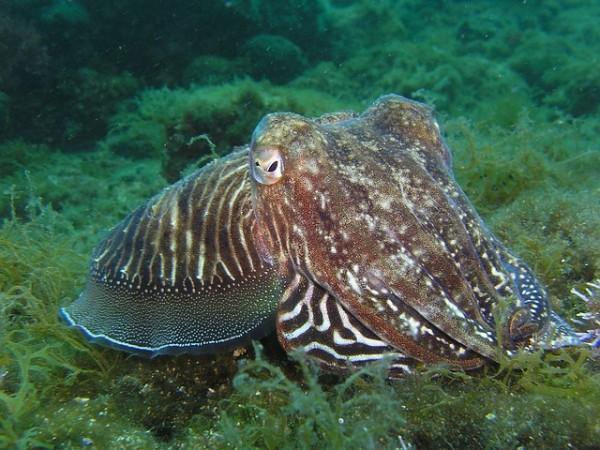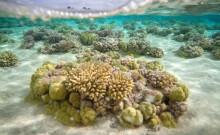
Deep-sea creatures have always fascinated researchers due to the way they look or for some bizarre habit they exhibit.
After the recent sightings of frilled sharks and hundreds of pink octopuses deliberately frying themselves up, scientists have now witnessed a blood-red squid perfectly mimicking a nautilus for the very first time.
Nautiluses are a type of marine molluscs, which can be considered as a distant cousin to squids, octopuses, and cuttlefish.
The footage of the squid, which might or might not be a new species, was captured by the crew of the Okeanos Explorer – a research vessel run by the U.S. National Oceanic and Atmospheric Administration (NOAA) – on April 17, deep beneath the surface in the western Gulf of Mexico.
The squid looked so bizarre that initially, researchers could not figure out if it was a squid at all.
"This one looks more like a vampire squid in color, but then it has this completely bizarre body pattern that just totally bowled me over. It almost looks like a nautilus in the way it's swimming," said squid biologist Sarah McAnulty, a Ph.D. student at the University of Connecticut, according to National Geographic.
NOAA biologist Mike Vecchione, a squid expert featured on the live Okeanos feed, said: "My first reaction was, 'What in the hell was that?'." He further said they could not figure out the animal until they went closer and the animal started rotating around.
Scientists are yet to say what the squid was, however, they are assuming it might be a Discoteuthis discus. "If that's what it is, then it's the first time anybody's seen one alive," as reported by Nat Geo.
The researchers also point out that shapeshifting is not something new for a squid as they commonly use the tactic to defend themselves. However, researchers found the latest incident "extreme".
"A couple of the arms were folded right flat on the back, and a couple was folded underneath, and a couple was sticking out to the side," said Vecchione and suggested the submarine probably spooked it.
Moreover, McAnulty suggests the squid's posture could help it collect "marine snow".
Marine snow, NOAA explains, is a shower of organic material that falls from upper waters to the deep ocean and is food for some deep-sea creatures.
Check out the video here:










